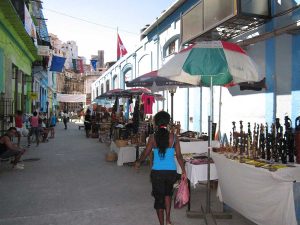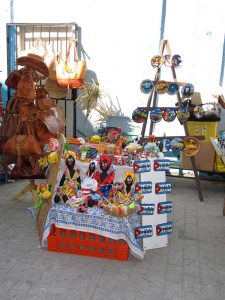As documented in our first Fotodiario on the Special Period, artisans in Cuba were once relegated to selling their wares by hanging them from the handle bars of their bikes and riding past tourists on the beach in the hopes of awakening their curiosity and (illegally) making a sale. In those days, the 1990s, the Cuban state prohibited Cubans from selling crafts directly to tourists without government licenses and state-authorized venues. After 2009, when Raúl Castro took charge, this was far less true: for the first time, artisans could sell their wares to middlemen who resold them in cities, often hundreds of miles away from their point of production. For many artisans who lived in the provinces and were unable to market their wares directly to buyers under the previous law banning middlemen, Raúl’s reform was a boon. Still, prices of handmade crafts skyrocketed overnight and the laws of capitalism took hold: rather than unique and different, many goods were sheer look-alikes, made by workers in large factory-style workshops whose owners enjoyed incomparable resources. These included seed money from family abroad or connections within the Communist Party apparatus that guaranteed access to raw materials and freedom from inspection. Craftsmen also adopted what owners and middlemen assumed visitors to the Caribbean wanted to buy and consume. This often included merchandise that mocked Blackness and caricatured the experiences of Black people under colonialism and enslavement through styles of dress and smiling, “teatro bufo” faces. Havana, November 2011.


